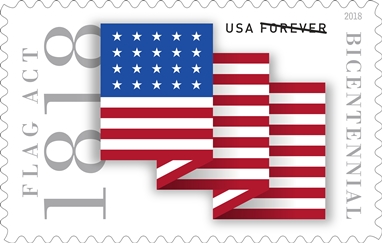
The COVID-19 pandemic has been wreaking havoc throughout the world, and part of the fallout is financial woe for the USPS. A significant reduction in advertising by mail and a further steep decline of first-class business and personal correspondence have resulted in a 30% drop in mail volume, putting the U.S. Postal Service at risk. The postal service estimates that it will run out of operational funds by September 2020, if not sooner.
No federal dollars are allocated to the United States Postal Service. Operations are funded by the sale of stamps and other postal supplies, as well as package delivery. In 2006, however, Congress enacted a requirement that, within ten years, the USPS pre-fund retirement benefits for the following 75 years. This onerous requirement was intended to make the service operationally independent, though no other federal agency is required to do this. The USPS has been unable to meet this obligation, resulting in annual deficits of billions of dollars.
Mail delivery is essential to the fabric of our country. The U.S. mail serves rural areas and remote locations that no other delivery service will undertake. Critical prescription medications are delivered by mail to the country’s most vulnerable citizens. Five states currently conduct all-mail elections, although voters still have the option of in-person voting. Absentee ballots are available in all states (one third of the remaining states require an excuse for not voting in person). Voting by mail is more convenient for many voters, may reduce election costs in some instances, and in time of pandemic, reduces personal exposure and risk. Financial woe for the USPS will affect citizens’ ability to vote in the upcoming presidential election if not corrected.
Mail delivery is a democratic service for all. According to a recent Pew Research Center survey, released in early April, 91% of respondents viewed the U.S. Postal Service, higher than any other federal agency. The favorable view was shared by both Democrats and Republicans.
Yet, providing funding relief for the postal service is fraught with politics. The President has stated that he will veto any bill that provides funding for the USPS unless the postal service raises rates for Amazon for package deliveries. Amazon is owned by businessman Jeff Bezos, who also owns the Washington Post, which has been critical of the present administration. There are members of Congress whose constituents rely on mail delivery, but prefer to see the service privatized. Still others, who support the USPS as a public entity, feel the need for operational reform.
Any proposed structural changes need to wait. The current financial woe for the USPS must end now. The service is too important to lose. Congress should fund the Postal Service to support its normal operations, now and in the future. Please write to your Congressional Representatives and ask them to provide the United States Postal Service with the financial support that it needs.
Sources
Coronavirus is Threatening One of Government’s Steadiest Services: The Mail by Nicholas Fandos and Jim Tankersley. The New York Times, April 10, 2020
Postal Service, beset by funding woes, faces new fight over Mail-in Voting by Max Greenwood. The Hill, May 1, 2020
The Postal Service Needs A Bailout More Than Ever. But Washington’s Not Sure. Editorial Board, San Francisco Chronicle, April 17, 2020
Voting by Mail Could Be What States Need But Can They Pull it Off by Michael Wines. The New York Times, April 11, 2020
We Can’t Afford to Lose the Postal Service by Casey Cep. The New Yorker, May 2, 2020




